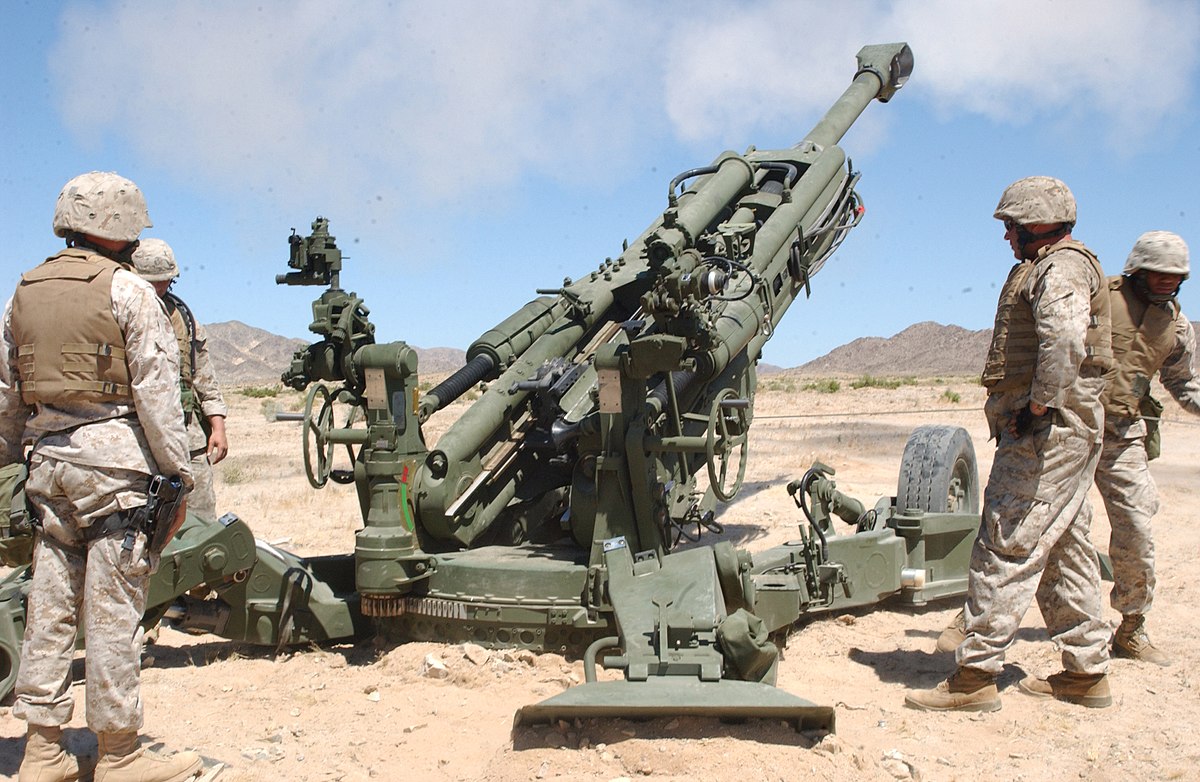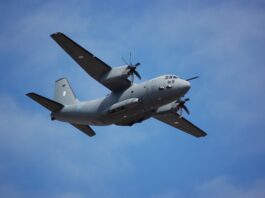Amid continuing Russian onslaught on Kyiv, the US Army has awarded a Florida-based company a slightly over $118 million deal to provide the Ukrainian military with more Gepard self-propelled 35mm anti-aircraft weapons.
Russia Adopts ‘New Tactic’ To Kill Patriot System; Rising Shoot Downs Of Moscow’s Missiles Reveals A Sinister Strategy
The Gepards in question appear to be ex-Dutch variations that were later sold to Jordan some ten years ago.
In 2013, the Netherlands and Jordan struck a €21 million deal that transferred 60 surplus Cheetah air defense systems to the Jordanian armed forces. The deal also included 350,000 rounds of 35mm ammo and spare parts.
On June 1, the Pentagon revealed in its daily contracting notice the Army’s agreement with Tampa, Florida’s Global Military Products, Inc., valued at $118,375,740.
Germany has sent several of these vehicles to the Ukrainian military, deploying them effectively, especially in defense of incoming Russian cruise missiles and drones.
The decision is significant amid a barrage of missile and drone attacks on Ukrainian cities, including the capital Kyiv. Russia has upped the ante against Ukraine after a recent drone attack on Moscow. Russia is now hitting Ukraine’s command and decision-making centers in a strategy shift.
Ukrainian Air Force spokesperson Yury Ihnat announced on June 1 that Russia had received enough UAVs from Iran to attack Ukraine daily.
“Shahed drones are now launched so often that it is unclear whether they are (supposed to be) detecting or depleting our air defense. It’s all in one: both detecting and, surely, depleting,” he said.
The Ukrainian Air Force reports that all 21 Shahed-drones and 15 cruise missiles (Kh-101/555) were shot down last night.
There is some damage to private houses due to falling debris. pic.twitter.com/dC1YRIvkJE
— NOELREPORTS 🇪🇺 🇺🇦 (@NOELreports) June 2, 2023
The delivery of Gepard would, thus, bolster Ukraine’s defense against Russian UAVs in the coming weeks, especially as the attacks don’t see any signs of abating.
However, the number of Gepards purchased for Ukraine through the US Army deal and the potential arrival date are also unknown.
Earlier, in January this year, German MP Roderich Kizewetter made a case for “buying back” the 15 Gepard self-propelled anti-aircraft guns (SZU) that were earlier sold to Qatar and redirecting it to Ukraine instead.

Since it first secured the system last year, Ukraine has employed the Gepard to shoot down everything from Russian cruise missiles to Iranian-made Shahed suicide drones.
The Gepard has a two-person turret with two 35mm Oerlikon Contraves KDA cannons built on the tracked Leopard 1 Main Battle Tank (MBT) chassis.
The search and tracking radars are installed on a single turret with two 35mm automatic guns on every Gepard model. It is made to be used as a point defense system against helicopters, low-flying aircraft, and other aerial threats. Targets on the ground can likewise be obliterated with catastrophic results by the 35mm cannons of the Gepard.
POINT DEFENSE: Anti-air systems like the German-made Gepard, with its radar guided twin Oerlikon 35mm auto-canons, have taken an increasing toll on Iranian made Shahed-136 UCAVs. 39 were shot down today, bring the total to eighty-four Shahed-136s interdicted in the last 2 days. pic.twitter.com/zIV3Qnex6T
— Chuck Pfarrer | Indications & Warnings | (@ChuckPfarrer) January 3, 2023
The RUSI assessment has described the system as “very successful” against the tiny, sluggish, and low-flying Shahed-136 drones that Russia has been using quite frequently since mid-September. This explains the US decision to buy additional Gepards from Jordan for Ukraine.
The Ukraine Security Assistance Initiative (USAI) is financing the latest US purchase of the Gepards. USAI can be used to purchase goods not already in American stock, such as the Gepard, in contrast to the so-called “drawdowns” of supplies taken directly from US military inventories and transferred to Ukraine’s armed forces.
This is intriguing as it comes amid reports that the US equipment drawn from a third country for delivery to Ukraine proved to be non-combat ready, spilling cold water on the plans, at least in the short term.
Equipment Drawn From US Stock Not Combat Ready
The inspector general of the Pentagon recently discovered that equipment taken from the US Army’s pre-positioned stock in Kuwait that was to be sent to Ukraine was not prepared for combat operations, Defense News reported.
“We identified issues that resulted in unanticipated maintenance, repairs, and extended lead times to ensure the readiness of the military equipment selected to support the Ukrainian Armed Forces,” the May 23 report stated. That pre-positioned stock area was the fifth of seven such locations worldwide.
Before being sent to Ukraine by the US European Command, all six of the M777 howitzers and 25 of the 29 M1167 High-Mobility Multipurpose Wheeled Vehicles were not “mission ready.”
By January 2023, the US government had reportedly used its drawdown authority 30 times to give Ukraine arms and equipment worth $18.3 billion. Pre-positioned stock for the Army, or APS, is designed to be kept at the maximum degree of preparedness so that it may be used immediately in an emergency.

Concerned that issues with poor maintenance and lax oversight of the [APS] equipment could result in future delays for equipment support provided to the Ukrainian Armed Forces, the inspector general released the report midway through the examination. It was also noted that if American forces had needed this technology, they would have encountered the same difficulties.
Even though the Howitzers and Humvees in US stocks in Kuwait have been less than combat-ready, the Gepards being purchased (likely from) Jordan are unlikely to run into similar problems.
Even though the contracting notice does not specify where the Gepards would be coming from, it does state, “Work will be performed in Amman, Jordan, with an estimated completion date of May 30, 2024.”
- Contact the author at sakshi.tiwari9555 (at) gmail.com
- Follow EurAsian Times on Google News



